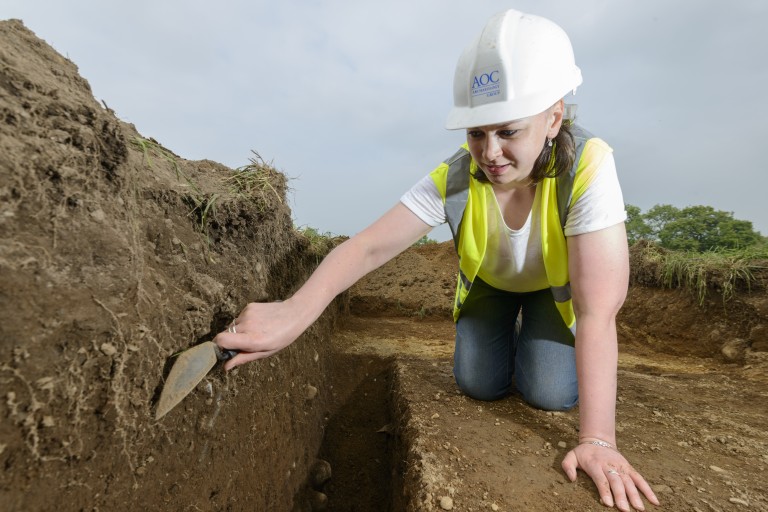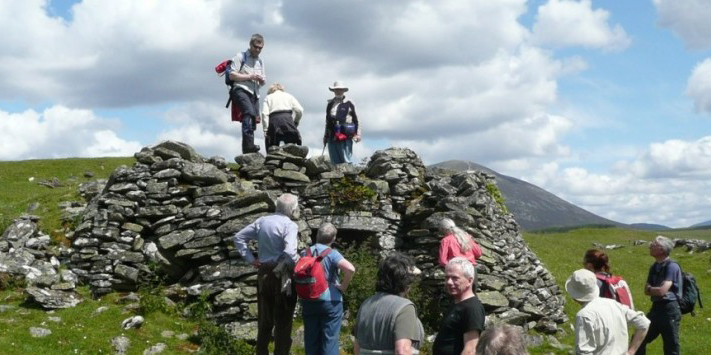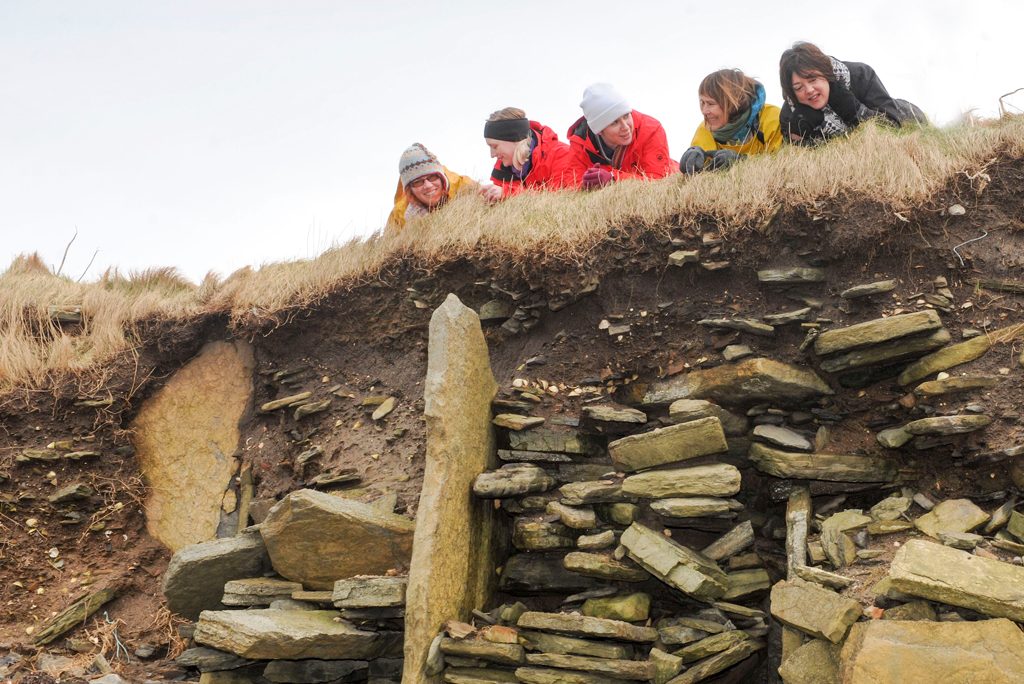How do I become an archaeologist? Are there any jobs? Do I need to go to Uni? These are just some of the questions we looked at with around 60 archaeologists and educators at an event we hosted in March.
We need archaeologists!
It turns out there’s never been a better time to become an archaeologist.
Whenever there’s a development somewhere of historic interest, archaeologists are called in. For instance, you might remember in 2013, the body of Richard III was discovered during some work on a Leicester car park.
Fast forward to 2018 and schemes like HS2, massive housebuilding projects, and roadworks like the A9 dualling in the Scottish Highlands have created a big demand for our skills. All the signs are that this will continue for years, if not decades.
The trouble is, there aren’t enough trained archaeologists to go round.

Archaeological dig at Castle Douglas
Mind the gap
Various training schemes have sprung up, and lots of training resources are being created to go with them.
Meanwhile, the UK and Scottish governments are investing tens of millions a year in apprenticeships, with archaeological schemes poised to come on-stream. University courses also provide varying levels of vocational or practical training, and opportunities are also available for community archaeologists.
All of this is encouraging, but at the moment it’s a bit of a tangle. None of the training has been mapped out, and there’s no clear route that people interested in an archaeology career can follow.

Examining the remains of an old lime kiln in the Perthshire Highlands
Archaeological Skills and Training in Scotland
The purpose of our event was to try to get all the main players in the same room for the first time, to share information and see if connections could be made.
In the morning, we heard from a dozen speakers. They made excellent presentations ranging from the Scottish training infrastructure, through examples of successful training initiatives, to the results of recent research in Scotland and the UK.
Videos of all the talks have been uploaded to YouTube.
The afternoon was devoted to discussion and debate, sharing experiences and suggesting ways forward. While there are many Scottish models of good practice, it was clear that there’s plenty of room for improvement. Some of the key points included:
- Some excellent examples of work-based training schemes
- Massive potential to develop apprenticeships in Scotland, building on work being done in England
- A gap in college-based engagement in archaeology
- Missing levels of vocational and other qualifications; but
- Lots of goodwill, and determination to improve things in Scotland
At the end of the day, people from a variety of organisations stood up and shared their intentions to work on many of the issues raised. Here at HES, we made a commitment to help take things forward.
If you’re thinking of a career in archaeology, or would just like to know more, there are loads of leads in our summary of the day, and also on the CIfA and ATF websites.
Maybe there’s a future in the past after all.

